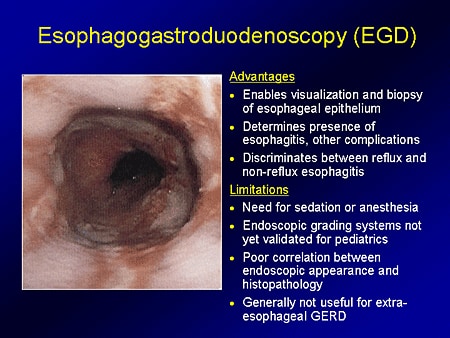In some children, when reflux happens so frequently and is so severe that it causes complications, it is known as pediatric gastroesophageal reflux disease (gerd) an estimated five to eight percent of children have pediatric gerd in babies, reflux is called spit up, and is normal and expected. Treatment for pediatric gerd. Gastroesophageal reflux represents the most common gastroenterologic disorder that leads to referral to a pediatric gastroenterologist during infancy in pediatric gastroesophageal reflux, immaturity of lower esophageal sphincter (les) function is manifested by frequent transient lower esophageal relaxations (tlesrs), which result in retrogra.
treatment for pediatric gerd
Treatment for gerd specific treatment will be determined by your child's doctor based on the following: your child's age, overall health, and medical history extent of the disease your child's tolerance for specific medications, procedures, or therapies the expectations for the course of the disease your opinion or preference. What are the symptoms of reflux and gerd in children? your child might not even notice reflux. but some children taste food or stomach acid at the back of the mouth. in children, gerd can cause. heartburn, a painful, burning feeling in the middle of the chest. it is more common in older children (12 years and up). bad breath; nausea and vomiting. A pediatric gastroenterologist will only use surgery to treat gerd in infants in severe cases. infants must have severe breathing problems or a physical problem that causes gerd symptoms for surgery to be an option..
